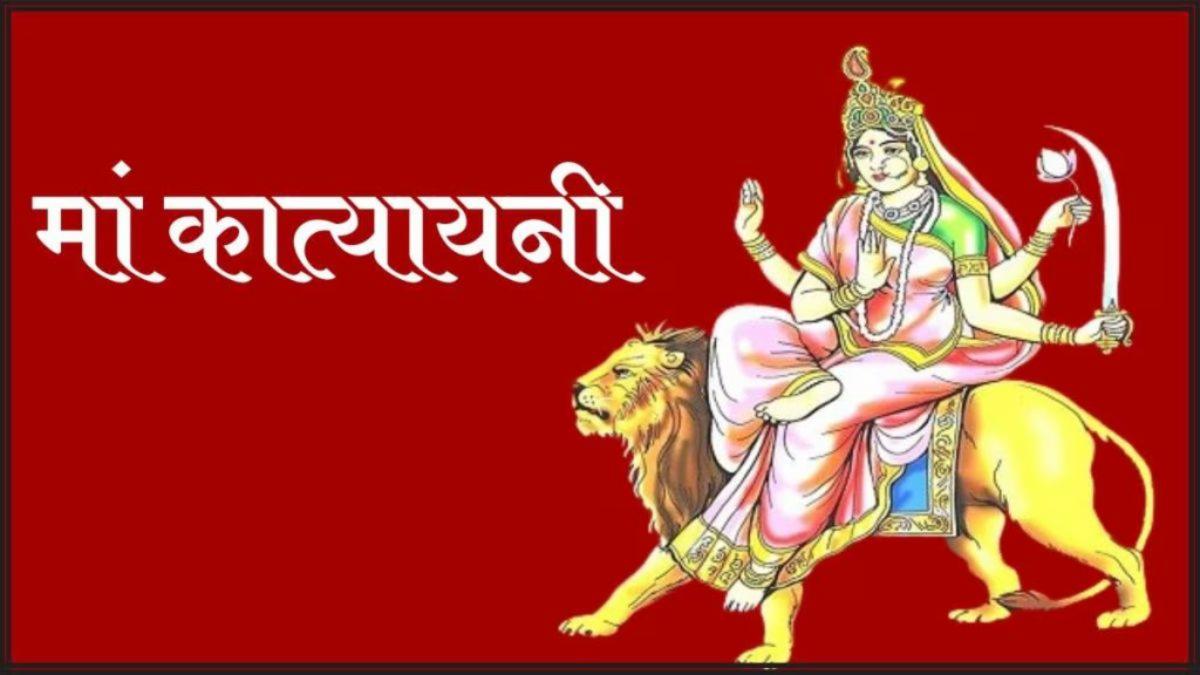Article Body
Celebrating Courage: Navratri Day 6 Honors Maa Katyayani, the Warrior Goddess of Strength and Desire
As the sun rises on the sixth day of Shardiya Navratri 2025, homes across India and the diaspora pulse with the rhythmic beats of dholaks and the scent of fresh marigolds. Today, September 27, devotees worldwide turn their hearts to Maa Katyayani, the fierce embodiment of Goddess Durga who wields a sword against darkness and a lotus of enlightenment. In a world rife with personal battles—be they marital quests, professional hurdles, or inner doubts—her worship ignites a spark of unyielding courage, reminding us that true power blooms from devotion.
Shardiya Navratri, the grand autumnal festival celebrating the triumph of good over evil, kicked off on September 22 and stretches until October 2, culminating in Vijayadashami. This year's observance, spanning the Shukla Paksha of Ashwin, draws millions into a nine-night (plus one) vigil of fasting, dance, and prayer. Day 6, known as Shashti Tithi, spotlights Maa Katyayani, the sixth of the Navdurga forms. Born from the collective radiance of the Trimurti—Brahma, Vishnu, and Shiva—she materialized in the hermitage of sage Katyayana, earning her name as the "daughter of Katyayana." Adorned with a crescent moon on her forehead, she rides a majestic lion, her four arms brandishing a gleaming sword, a sparkling lotus, and gestures of boon-granting (varada mudra) and fearlessness (abhaya mudra). Her golden hue radiates like the dawn, a beacon for those seeking victory over demons within and without.
The Legend That Fuels Faith
Maa Katyayani's lore is a saga of divine intervention. As the story unfolds in the Devi Mahatmya, she emerged to vanquish the buffalo demon Mahishasura, whose tyranny terrorized the heavens. Armed with weapons bestowed by the gods, she charged into battle, her roars shaking the cosmos until the demon lay slain. This victory isn't mere myth; it's a metaphor for dismantling ego, negativity, and societal chains. In Vrindavan's lore, the gopis—Krishna's devoted milkmaids—invoked her for marital bliss, vowing to wed the divine cowherd. Their prayers, it is said, sweetened the bond between Radha and Krishna, making today a cherished day for unmarried women yearning for a worthy partner. "Praying to Katyayani fulfills desires of the heart," shares temple priestess Anjali Devi from Delhi's historic Katyayani Temple, where queues form at dawn. "She doesn't just grant; she empowers you to claim what's yours."
Rituals: A Dance of Devotion and Discipline
The puja vidhi for Day 6 is a symphony of simplicity and sanctity, designed to channel her warrior energy. Devotees, clad in the day's auspicious color—silvery grey, symbolizing resilience and lunar grace—begin with a purifying bath at sunrise. The altar gleams with a kalash (sacred pot) brimming with holy water, topped by mango leaves and a coconut. An idol or image of Maa Katyayani takes center stage, draped in red and gold, surrounded by diyas flickering like stars.
Step by step, the rituals unfold:
- Invocation and Offerings: Light a ghee diya and anoint the goddess with vermilion (sindoor) and sandalwood paste. Present a garland of red hibiscus, five seasonal fruits, and meetha paan (sweet betel leaf). Honey, her favored prasad, drips like liquid gold, invoking sweetness in life.
- Mantra Chanting: The air hums with the Beej Mantra: Om Aim Hreem Kleem Chamundayai Vichche Namah, chanted 108 times on a rudraksha mala. For marital aspirations, the Katyayani-specific invocation rings out: Sarva Mangala Mangalye Shive Sarvartha Sadhike, Sharanye Tryambake Gauri Narayani Namostute. Those reciting the Durga Saptashati or Kavach Path deepen their connection, while a simple hawan (fire ritual) seals the prayers.
- Evening Aarti and Prasad: As dusk falls, the aarti—Jai Ambe Gauri—echoes through homes and pandals. Sattvic fare like kheer or fruit-based sweets is offered, then shared as prasad, binding families in her grace.
Unmarried seekers, in particular, pour extra fervor into these rites. Legend holds that the gopis' unshakeable faith moved the goddess; today, young women tie sacred threads, whispering vows for a Krishna-like companion. Astrologers note Jupiter's influence here, benefiting signs like Sagittarius and Pisces with amplified harmony.
Echoes from the Streets: A Nation in Reverence
From Mumbai's garba grounds to New York's makeshift mandaps, social media buzzes with tributes. "Jai Maa Katyayani! Her strength fuels my battles," posts a Delhi professional on X, sharing a selfie in grey attire amid dandiya sticks. In Gujarat, dhol beats sync with chants, while Bengal's Durga Puja pandals swell with creative effigies of the lion-riding warrior. Even global outposts—from Toronto's Devi Temple to Sydney's Hindu Centre—host virtual pujas, bridging oceans with her timeless roar. Amid climate anxieties and personal upheavals, her message resonates: Courage isn't absence of fear; it's charging forward, sword in hand.
As Navratri's midway sun sets, Maa Katyayani whispers a truth etched in epics: Demons fall not to might alone, but to the fire of a devoted soul. Tomorrow beckons Maa Kaalratri's purifying fury, but today, let her grey light steel your resolve. Shubh Navratri—may her blessings carve paths through your storms.


Comments